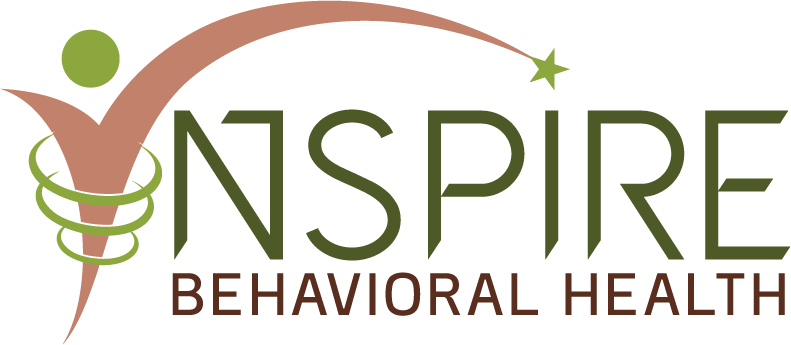
‘Tis the season! Bells are jingling, trees are being decorated and slung on top of cars, and people are bustling down the sidewalk to get last-minute shopping done. The excitement in the air is palpable. So why do 38% of American adults report feeling more stress during the holiday season? Despite the culture of celebration that surrounds the period from Thanksgiving to New Year’s, many of us feel our losses more acutely during that time.
Pressure to feel happy can lead to amplified grief. For those who grew up in homes where the holidays were not happy, this time of year may bring back memories we’d rather forget.
Additionally, many of us struggle with the winter blues as the days get colder and shorter.
Instead of focusing on how we think we should feel, let’s talk about how to take care of ourselves and what we can do to make the holiday season more peaceful.
Difficult Emotions You May Experience This Time of Year
Grief
The holidays can be a painful reminder of loved ones who are no longer physically present to celebrate holidays with you. It’s important to remember that everyone grieves differently and in their own time. There’s no timeline for mourning a loss.
Loneliness
Loneliness can also be amplified during the holidays. Many of us may wish to share the holidays with a partner but find we haven’t met that special someone or they’re no longer with us. And while gathering with family and friends is a focal point of the holidays, for those with a smaller inner circle, loneliness can be a familiar companion.
Anxiety
89% of adults reported feeling stress due to limited finances and anticipation around seeing their families during the holidays, and if you ask us, that doesn’t sound very joyous at all.
It’s important to identify helpful resources year-round, but especially through the holiday months. Talk to others about your difficult feelings. We’re here to help you through this holiday season, so let’s talk about some more ways you can take care of yourself from Thanksgiving to New Year’s.
Mental Health Tips to Help Get You Through the Holidays
1. Honor your emotions
Taking time to honor how we’re feeling gives us the power to do what’s best for us at any given moment. When you listen to how you’re feeling, you’re able to better show up for yourself and your loved ones.
Start by allowing yourself to feel your emotions without needing to create a story about them or push them away. For example, if you’re overwhelmed with grief, try not to create a narrative about how you feel. Instead, notice how you’re feeling without judgment. If you’re not sure exactly what you’re feeling, you can journal about your experience at that moment.
When we honor our emotions, we’re:
- resisting the urge to bottle difficult feelings up
- widening our capacity to be with tough emotions
- allowing ourselves to show up as we are, not as we think others want us to be
Most importantly, we’re cultivating self-awareness and self-compassion, two tools that are instrumental to our mental health care.
2. Walk away from difficult conversations
You may have heard that it’s important not to walk away from tough conversations. This is solid advice for your stable, emotionally mature relationships, like those with a spouse or longtime friend.
However, you may be headed into the holidays dreading certain conversations that never change. If a conversation always ends the same way and never leaves you feeling refreshed, it’s okay to walk away. Here are some phrases we like for making a graceful but necessary exit from a conversation you just don’t want to be in.
- “I’ve enjoyed talking with you, but I’m feeling a little drained. I’ll see you later!”
- “[Name], I love catching up with you, but I’m not comfortable talking about this subject.”
- “Let’s talk about something else.”
These may seem blunt, so here are some things to remember for navigating stressful conversations this holiday season. You’re not being rude or selfish. You’re putting your own needs first. On top of that, you don’t owe anyone an explanation if you no longer want to talk about something.
3. Prioritize time with yourself
Whether you’re grieving, so stressed you want to pull your hair out, or having a perfectly delightful holiday season – and for a lot of us, it’s a mix of all three – time with yourself is crucial. While honoring your emotions and navigating difficult conversations are vital tools in the mental health toolbox, they also take energy and self-reflection. This year, take time to recharge by spending time alone before you find yourself running on empty.
Whether you love meditating, going to the movies by yourself, or spending the day reading a book, make sure you spend time alone. No partner, no children, no exceptions. When we take time to indulge in solo activities that bring us joy, we’re able to be present for our own needs and the needs of those we love more fully – and that’s one of the best gifts we can give.
4. Don’t be afraid to say “no”
We’re all guilty of saying yes one too many times. If you’re nodding along, you know that saying “yes” to even the most well-intentioned people can keep you from saying “yes” to yourself. Just like putting your feelings first, putting your own needs and wants first this holiday season isn’t selfish – it’s necessary.
In the same way that “yes” can open the door to a world of possibility, “no” empowers us to choose what experiences and people we want to invite into our lives. The alternative is opening ourselves up to everything that comes our way – and that can be exhausting.
Saying “no” may look like limiting the time you spend with certain people, refraining from buying everything on your child’s exhaustive Christmas list, or going to fewer social events.
If you have trouble saying no directly, try this tip. Instead, say, “I’ll have to think about it,” or “Let me get back to you.” Instead of locking yourself into a “yes”, you give yourself the chance to decide what it is you want to do.
5. Volunteer in your community
Research shows that helping others who struggle to help themselves reduces stress and increases positive feelings – and if you ask us, that sounds like the perfect cure for anxiety during the holidays.
If you’ve ever volunteered, you may be familiar with the perspective that it gives to you in return. Often, the issues that dominate your every thought seem less significant after spending time with other people and focusing on their needs. It’s amazing how helping others is also a way to help yourself.
6. Seek professional help if you need more support
Many people find that seeing a therapist is a necessary supplement to mental health routines. A skilled therapist can help you navigate your emotions, gain insight into your lived experiences, and give you more tools to help you cope with tough experiences throughout the holidays and beyond. If you find that you need support this holiday season, don’t hesitate to get in touch with one of our experts at Inspire Behavioral Health.
Celebrate the holidays your way this year
Whether you’re dealing with difficult emotions or not this holiday season, many of us feel pressure to go along with the status quo. We often comply with the desires of our families or the larger group we spend the holidays with to avoid causing dissent at the cost of our well-being.
This year, try putting yourself first by allowing yourself to feel difficult emotions, exiting from social interactions you’d rather not engage in, prioritizing “you-time”, leaning into the power of no, and helping others that can’t help themselves. You don’t have to sacrifice your own needs to have a joyful, peaceful holiday season. Contact Inspire Behavioral Health to learn more about how we can support you around the holidays.







